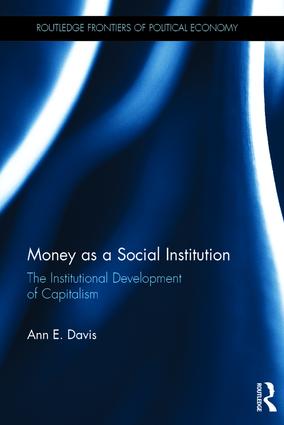
By Ann E. Davis. From Routledge:
Money is usually understood as a valuable object, the value of which is attributed to it by its users and which other users recognize. It serves to link disparate institutions, providing a disguised whole and prime tool for the “invisible hand” of the market.This book offers an interpretation of money as a social institution. Money provides the link between the household and the firm, the worker and his product, making that very division seem natural and money as imminently practical. Money as a Social Institution begins in the medieval period and traces the evolution of money alongside consequent implications for the changing models of the corporation and the state. This is then followed with double-entry accounting as a tool of long-distance merchants and bankers, then the monitoring of the process of production by professional corporate managers. Davis provides a framework of analysis for examining money historically, beyond the operation of those particular institutions, which includes the possibility of conceptualizing and organizing the world differently. This volume is of great importance to academics and students who are interested in economic history and history of economic thought, as well as international political economics and critique of political economy.
See more here
For those interested in performing a review of this book for URPE’s flagship journal, Review of Radical Political Economics, please get in touch with David Barkin
